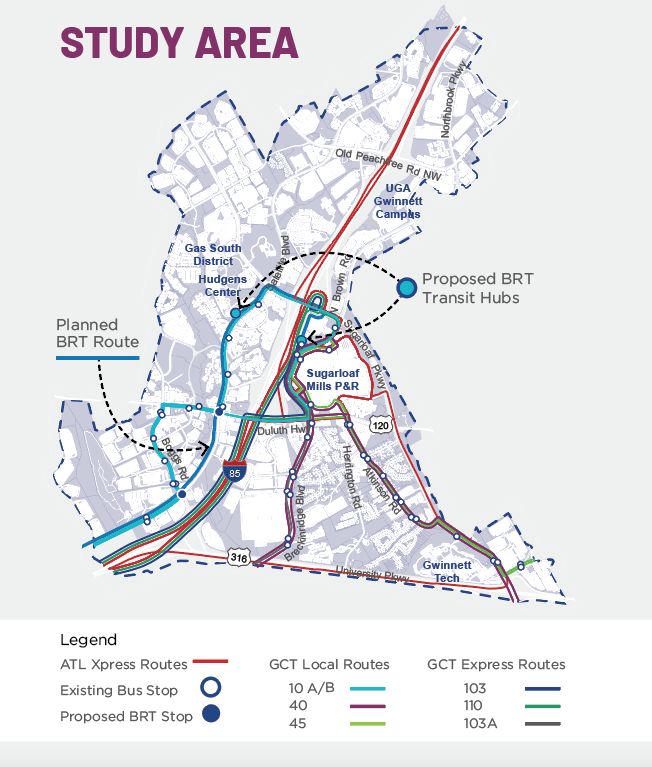Draw the District: A Chalk Arts Festival is taking place on March 7th at The Hudgens Center for Art & Learning. Get more info and register for the competition today!
The Sugarloaf LCI Transit Enhancements and Future Station Planning Study identified strategic solutions to enhance the current transit rider experience and prepare for future transit in the district.
Project Advisory Group (PAG) Meeting #1: Complete
Sugarloaf CID Board Presentation #1: Complete
Survey: Closed
Intercept Interviews: Complete
Area and Existing Plan Assessment to Sugarloaf CID: Complete
PAG Meeting #2: Complete
Drop-In Hours: Complete
Open House: Complete
Transportation and Placemaking Strategies to Sugarloaf CID: Complete
CID Board Presentation #2: Complete
Final Study Complete: TBD
CID Board Presentation #3: Complete
Final Board Presentation: Complete
Final Study Recommendations Documentation: Complete
Gwinnett County Transit and Xpress commuter bus service currently serve the Sugarloaf CID area. The study identified opportunities to improve the current transit rider experience and promote ridership at bus stop locations and at the Sugarloaf Park & Ride lot. Additionally, Gwinnett County plans for Bus Rapid Transit (BRT) to serve the district. The study helps prepare the CID for this planned service by identifying infrastructure needs and providing transit station area concepts for the Gas South District and Sugarloaf Mills area.
Every trip on transit is inherently multi-modal—meaning every bus rider starts out either walking or biking. Ensuring pedestrians and bicyclists feel safe and comfortable is, therefore, all more important near and connecting to bus stops and transit stations. Improving these conditions will not only serve existing transit riders but encourage new ones. This effort studied the existing pedestrian and bicycle infrastructure and highlighted needed improvements to maximize safety and comfort.
Thank you for your interest in this study! This effort was completed as of September 2022. Take a look at the resources and documents shared below to learn more about the study and its recommendations.
Below are a few items that you may find helpful:
With grant support from ARC’s Livable Centers Initiative (LCI) program, the Sugarloaf CID looked at ways to enhance transit riders’ experience and support expanded transit options in the district through improved bus stops and future station considerations, more walking and biking connections to transit, and opportunities for art and placemaking around existing and planned future transit.
